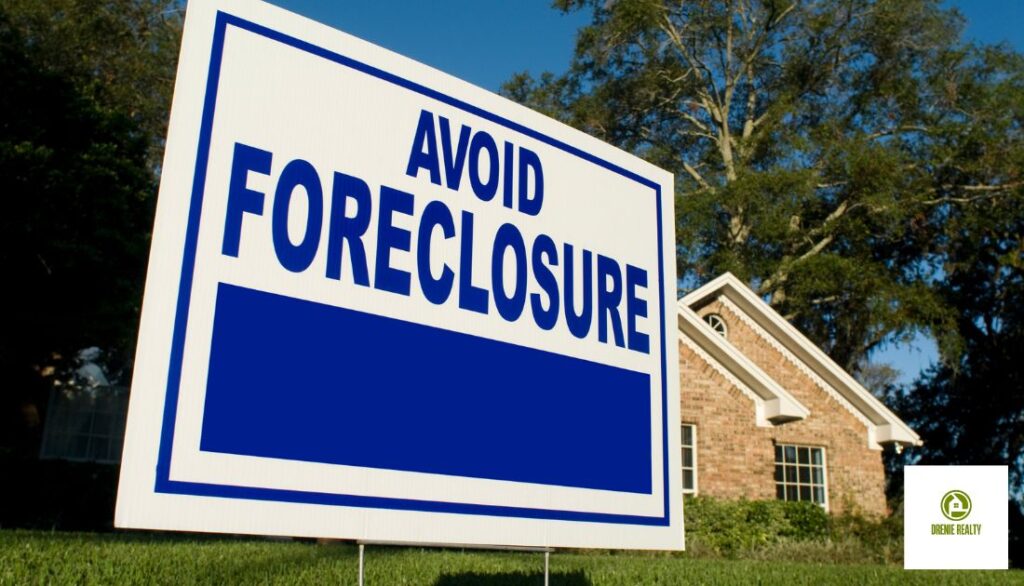Foreclosure is a daunting process, often accompanied by a whirlwind of emotions and uncertainties. In Texas, where the laws and procedures surrounding foreclosure can be complex, homeowners may find themselves grappling with a critical question: when is it too late to stop foreclosure?
As the clock ticks down, the pressure mounts and the stakes feel higher than ever. It’s a situation that can leave you feeling trapped and anxious, worrying about the loss of your home and future.
Understanding the timeline of foreclosure in Texas is essential for anyone facing this challenging circumstance. Whether you’re just starting to feel the pressure of missed payments or have already been served with a notice, the realities of foreclosure might have you questioning your options.
Each day can bring new developments, and varying factors can greatly influence your next steps. As we delve deeper into this topic, we will explore the intricacies of foreclosure in Texas, shedding light on what you need to know to navigate this stressful situation and potentially harness a path forward.
What Does Foreclosure Mean?
At its core, foreclosure is a legal process that occurs when a homeowner defaults on their mortgage payments. When this happens, the lender—a bank, credit union, or mortgage company—eventually takes actions to reclaim the property, repealing the homeowner’s rights. According to the RealtyTrac report, in the United States alone, there were over 300,000 foreclosure filings recorded in 2022. That statistic alone highlights how prevalent this issue can be.
Why Does Foreclosure Happen?
Foreclosure can happen for several reasons, often rooted in financial hardships. Here are some of the most common factors:
- Job Loss: A sudden loss of income can make it difficult, if not impossible, to maintain consistent mortgage payments.
- Medical Expenses: Unexpected medical bills can weigh heavily on one’s finances, often leading to default.
- Divorce or Separation: Life changes can precipitate a need to sell or maintain two households, complicating financial responsibilities.
- Interest Rate Increases: If you have an adjustable-rate mortgage (ARM), increases in interest rates can lead to a surge in monthly payments, making it hard to keep up.
Understanding these causes can offer insight into the gravity of foreclosure and why it’s essential to stay informed about your financial responsibilities.
The Foreclosure Process: Step by Step
1. Missed Payments
The road to foreclosure begins with missed mortgage payments. Lenders typically grant a grace period of 15 days; however, once you miss a payment, you will often receive a late fee and a notice from the lender.
2. Pre-foreclosure
After about 90 days of missed payments, the lender may initiate the pre-foreclosure phase. During this phase, homeowners are informed that their property could be at risk. Many lenders offer alternatives, such as loan modifications or repayment plans, in hopes of assisting homeowners before reaching full foreclosure.
3. Public Notice
Should the situation not improve, the lender will file a public notice—often known as a “Notice of Default”. This serves as a formal declaration that the property may enter foreclosure.
4. Auction
If a resolution cannot be reached during pre-foreclosure, the lender will move to sell the property at a public auction. This is typically your last chance to intervene, as homeowners can settle their debts or request a short sale.
5. Post-foreclosure
In the event the property does not sell at auction, the bank becomes the new owner and will list it as an REO (Real Estate Owned). At this point, the bank is responsible for maintaining the property.
Reports indicate that there was a significant 61% rise in foreclosure auctions between 2022 and 2023, emphasizing the importance of understanding this process.
Types of Foreclosure
Understanding the different types of foreclosure can help clarify your options should you find yourself facing this daunting situation.
Judicial Foreclosure
In a judicial foreclosure, the lender must file a lawsuit to initiate the process. This type is more common in states that require judicial proceedings for foreclosure, often resulting in a timeline that can last several months or even years.
Non-Judicial Foreclosure
In contrast, non-judicial foreclosure occurs outside of court. Utilizing a power of sale clause in the mortgage, the lender can proceed with the foreclosure without a legal judgement. This is generally faster, taking only a few months.
Deed in Lieu of Foreclosure
Sometimes, lenders may allow homeowners to transfer ownership of the property to the lender, which often protects them from credit damage. For the lender, it means bypassing the lengthy process of foreclosure.
Understanding these distinctions can provide peace of mind and potential negotiating points for those at risk of losing their homes.
When is it too late to stop foreclosure in Texas?
Understanding the timeline of the foreclosure process is vital in determining when it might be too late to stop it.
The Importance of Timing
Once the Notice of Default is filed, you generally have a limited time frame to take action. Here are some crucial points to keep in mind:
- 30 Days After the Notice of Default: The best time to act is immediately after receiving the Title of Default Letter. You can negotiate with your mortgage lender to avoid foreclosure. Discussing options, such as a loan modification or repayment plan, could halt the foreclosure process.
- 21 Days Before the Auction Date: You will receive a Notice of Sale, allowing you 21 days to respond. Here, you may take broader action, including filing for bankruptcy or pursuing alternative solutions.
- Day of the Auction: Typically, once your home reaches the auction stage, it becomes significantly challenging to prevent the sale. If your property is auctioned off, it may be almost impossible to reclaim. Most people in Texas find it hard to stop foreclosure after this point.
Can you stop a foreclosure once it starts?
Yes, it is possible to stop a foreclosure after it begins. However, the effectiveness of your actions depends on how quickly you respond and the specific circumstances of your case. The earlier you act, the better your chances are of stopping the foreclosure process.
Avoid foreclosure by selling my house fast in Houston, TX
If you find yourself in the unfortunate position of facing foreclosure, you might wonder why selling your house quickly could be your best option. Let’s break it down.
Quick Cash for Your Future
By selling your house fast, you can potentially secure enough cash to pay off your mortgage before your lender can move against you legally. This rapid turnaround can allow you to save your credit score, which would take a significant hit from foreclosure.
Avoiding Maintenance Costs
Maintaining a property is not only stressful; it can also be financially draining. If your home has fallen into disrepair, you might find it challenging to invest more money into something you could lose. Selling your home as-is allows you to escape ongoing costs without the overhead of repairs or maintenance.
Work with a Real Estate Professional
Teaming up with a real estate professional like Drenie Realty can streamline the process. They possess local market knowledge and can guide you to price your home appropriately—even in a hurried sale.
Common Myths About Stopping Foreclosure
One prevalent myth about stopping foreclosure is that merely declaring bankruptcy will automatically save your home. While bankruptcy can provide temporary relief by delaying the foreclosure process, it doesn’t eliminate your mortgage debt. Homeowners often find themselves misled into believing that this legal option guarantees their property’s safety when, in reality, they still must address the underlying mortgage issues to achieve a long-term solution.
Another misconception is that seeking help from a loan modification company or foreclosure consultant is always beneficial. In many cases, these firms charge hefty fees for services that homeowners could manage independently or through non-profit organizations at little to no cost.
Many individuals overlook the potential for direct negotiations with lenders who are often more willing than expected to work out repayment plans or modified loans if approached thoughtfully and promptly. Empowering yourself with knowledge and resources can be far more effective than relying on third-party promises shrouded in uncertainty.
The Benefits of Selling to Drenie Realty
Why should you consider Drenie Realty specifically? Here are a few reasons:
Experience
Drenie Realty has extensive experience with clients facing tough situations like foreclosure. Our professionals understand the nuances of the local market and what buyers are looking for in Houston.
Speed
We pride ourselves on closing deals fast. If time is of the essence, you will appreciate a streamlined process that gets cash in your hands quickly.
Compassionate Guidance
Dealing with foreclosure can be emotionally taxing. We ensure that our clients feel supported throughout the process, providing a listening ear and valuable advice.
Last Few Words
Homeownership should be a fulfilling experience, not a source of anxiety. If you find yourself on the precipice of foreclosure, remember that selling your house fast is a viable option that can provide financial relief. At Drenie Realty, we are committed to guiding you through this challenging time with integrity and expertise.



